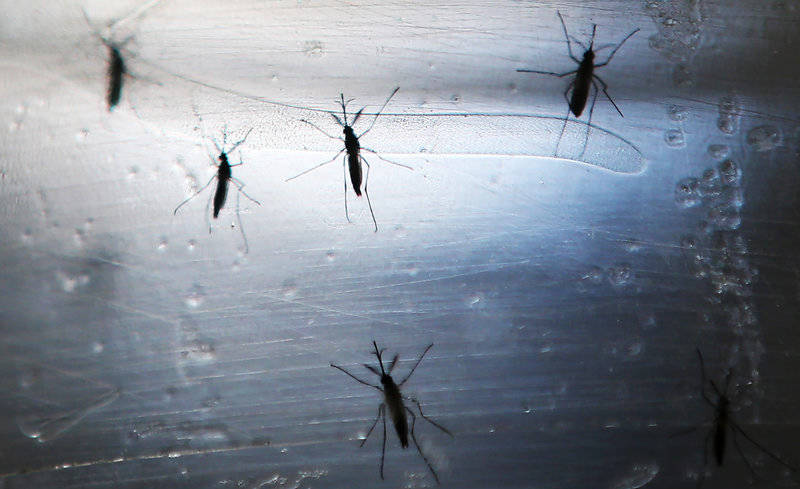Last week, researchers at Harvard Medical School reported in the journal Nature two experimental vaccines that completely protect mice from Zika.
"The protection was shocking," says Dr. Dan Barouch, who led the study. Usually the Zika virus replicates to high levels in these mice, he says. But when they gave the animals the vaccines, they couldn't detect any virus.
One reason scientists have created these experimental vaccines so quickly is they're using a relatively new technology. It's called DNA vaccines.
"It is really the vaccine trend of the future," says Dr. Anthony Fauci, who leads the National Institute of Allergies and Infectious Diseases.
Traditional vaccines — like for the flu or measles — contain whole viruses. They're crippled or inactivated. But to make the shots, you have to grow up batches of live virus. That can be dangerous and usually requires special permits.
By comparison, a DNA vaccine contains just a tiny piece of a virus's genetic code. It's harmless and easy to work with.
"So it's a simpler, more efficient and ultimately a safer approach," Fauci says.
So far, no DNA vaccines have made it through clinical trials and been approved by the FDA. But in recent years, the vaccines have improved quite a bit, both Kim and Fauci say.
In particular, researchers had to develop a new way of delivering the vaccine. For these vaccines to work, they have to get inside cells — which is much harder for a piece of DNA than a whole virus.
In one delivery system, Fauci says, there's a device that actually shoots the DNA vaccine in through the skin without necessarily using a needle. "It's kind of like a jet stream that puts the virus in the vaccine right through the skin into the tissue," he says.
Inovio has made another system, Kim says. It actually gives the person a low voltage electrical shock to coax the vaccine into cells. "That happens very quickly, like in millisecond or a hundredth of a second," he says, "so the pain level is similar to that of a regular needle."
Researchers at NIH are also working on a DNA vaccine for Zika, Fauci says. They hope to begin clinical trails in a few months.
That means at least four Zika vaccines are showing promise. And with a little luck, one of these could make it through approval sometime in early 2018, Fauci says.
Copyright 2016 NPR. To see more, visit http://www.npr.org/.
9(MDAxOTAwOTE4MDEyMTkxMDAzNjczZDljZA004))

9(MDAxOTAwOTE4MDEyMTkxMDAzNjczZDljZA004))
